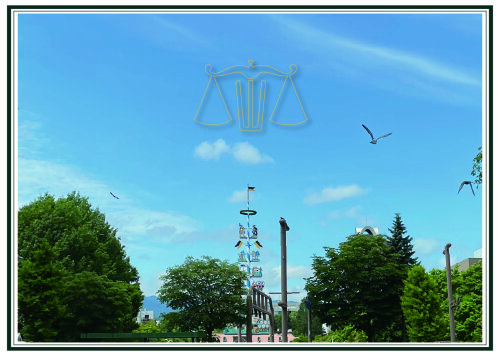Best Job Discrimination Lawyers in Sapporo
Share your needs with us, get contacted by law firms.
Free. Takes 2 min.
List of the best lawyers in Sapporo, Japan
About Job Discrimination Law in Sapporo, Japan
Japan's employment practices have historically been rooted in long-term employment and seniority-based promotion, but the country has made significant efforts to promote fair employment and eradicate job discrimination. Sapporo, as one of Japan's major cities, is governed by national laws that prohibit job discrimination. This includes discrimination based on race, creed, sex, social status, or family origin as laid out in the Constitution of Japan, as well as other laws specifically designed to protect workers' rights, such as the Labor Standards Act and the Equal Employment Opportunity Law.
Why You May Need a Lawyer
In situations where an employee believes they have been discriminated against due to characteristics such as gender, nationality, pregnancy, age, disability, or other personal attributes, legal assistance may be crucial. A lawyer specializing in employment law can help in understanding individual rights, assessing the validity of a discrimination claim, and guiding through legal procedures that might include mediation, filing a complaint with labor authorities, or litigation. Legal support is especially useful for those facing language barriers, complex legal scenarios, or workplace retaliation.
Local Laws Overview
Job discrimination in Sapporo is subject to the same national laws as the rest of Japan. The core legal framework includes the Constitution of Japan, which guarantees equality under the law, and the Labor Standards Act, which sets out minimum standards for working conditions. Specific to discrimination, the Equal Employment Opportunity Law prohibits discrimination in hiring, promotion, and all workplace practices based on gender. Furthermore, other laws prohibit discrimination against part-time and fixed-term workers, while the Act on Promotion of the Employment of Disabled Persons addresses discrimination on the basis of disability. It's essential to know how these laws interact with one another and how they are applied in Sapporo.
Frequently Asked Questions
What constitutes job discrimination in Sapporo?
Job discrimination refers to unfair treatment of employees or job applicants based on attributes unrelated to their job performance or qualifications. This includes gender, age, race, religion, disability, and nationality.
Are foreign workers protected against job discrimination in Sapporo?
Yes, foreign workers have the same employment rights and protections against discrimination as Japanese nationals under the law.
What should I do if I face sexual harassment at work?
It's important to document incidents, seek support, and consult a lawyer to understand the options available, which may range from internal company procedures to legal action.
Can my employer fire me because I am pregnant?
No, terminating employment due to pregnancy is considered discrimination and is prohibited by law.
Is age discrimination common in job hiring in Sapporo?
While age discrimination is not explicitly prohibited by a specific law, it is generally frowned upon, and job postings should specify qualifications without unjustifiable age limitations.
Are there any employment quotas for disabled workers in Sapporo?
Yes, like the rest of Japan, certain businesses are required by the Act on Promotion of the Employment of Disabled Persons to meet quotas for employing persons with disabilities.
What are my rights if I am discriminated against during the job application process?
You are entitled to be considered fairly based on your ability to perform the job. Discrimination at this stage can be addressed by reporting to the labor bureau or seeking legal recourse.
Can I sue my employer for job discrimination?
If mediation and administrative remedies are unsuccessful or inappropriate, it is possible to take legal action against your employer for job discrimination.
What kind of evidence do I need to prove job discrimination?
To prove job discrimination, you may need written documentation, witness testimonies, records of workplace policies and procedures, and any direct communications such as emails demonstrating discriminatory practices.
How long do I have to file a complaint or take legal action?
Legal deadlines vary based on the type of claim, so it is important to consult with a lawyer as soon as possible to ensure that you do not miss any critical timelines.
Additional Resources
For additional support and information regarding job discrimination in Sapporo, you can reach out to the local labor bureau, seek guidance from the Japanese Ministry of Health, Labour and Welfare, and contact support groups or non-governmental organizations dedicated to workers' rights. The Japan Legal Support Center can also provide assistance.
Next Steps
If you need legal assistance in job discrimination, the first step is to gather any relevant information and documentation related to your situation. Next, contact a reputable lawyer with experience in employment law who can guide you through your options and assist with administrative procedures or legal representation if necessary. Lastly, do not hesitate to utilize the additional resources available for support throughout the process.
Lawzana helps you find the best lawyers and law firms in Sapporo through a curated and pre-screened list of qualified legal professionals. Our platform offers rankings and detailed profiles of attorneys and law firms, allowing you to compare based on practice areas, including Job Discrimination, experience, and client feedback.
Each profile includes a description of the firm's areas of practice, client reviews, team members and partners, year of establishment, spoken languages, office locations, contact information, social media presence, and any published articles or resources. Most firms on our platform speak English and are experienced in both local and international legal matters.
Get a quote from top-rated law firms in Sapporo, Japan — quickly, securely, and without unnecessary hassle.
Disclaimer:
The information provided on this page is for general informational purposes only and does not constitute legal advice. While we strive to ensure the accuracy and relevance of the content, legal information may change over time, and interpretations of the law can vary. You should always consult with a qualified legal professional for advice specific to your situation.
We disclaim all liability for actions taken or not taken based on the content of this page. If you believe any information is incorrect or outdated, please contact us, and we will review and update it where appropriate.












